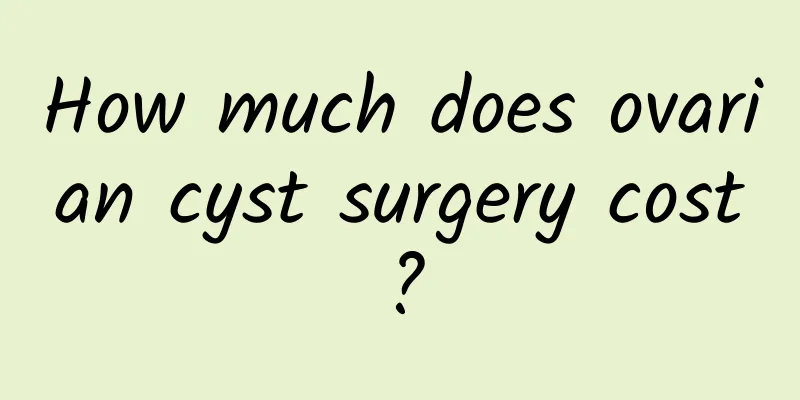Possible adverse reactions after abortion

|
Ending pregnancy through abortion can cause great physical and mental harm to the patient. Due to the influence of the operation and the patient's physical fitness, the patient may also experience various symptoms after the operation, which need to be treated in time to avoid adverse effects on physical recovery. 1. Uterine bleeding Uterine bleeding may be caused by premature uterine injury during the operation or incomplete abortion. If the amount of bleeding is large, exceeding 30ml, in addition to giving uterine contraction drugs, the residual embryonic tissue in the uterine cavity should be quickly removed. Bleeding generally lasts about 3 days after abortion. If the bleeding frequency is too high, the amount of bleeding is large, and there is abdominal pain, it may be complicated with infection and requires immediate treatment. 2. Residual pregnancy tissue If the embryonic tissue is not completely removed during the operation, it may cause bleeding and lower abdominal pain. Traditional Chinese medicine and uterine contraction drugs can be used to promote its expulsion, or even perform curettage again to completely clear the uterine cavity. 3. Uterine perforation Uterine perforation is mainly caused by surgical instruments. If the operator pays attention and operates carefully and gently, it can be avoided. If there is no intra-abdominal bleeding after uterine perforation, the patient can be hospitalized for observation. Otherwise, the perforation should be sutured immediately. 4. Intrauterine adhesions It rarely occurs, but is usually caused by damage to the cervix and uterine cavity during surgery. It can block the discharge of menstrual blood, causing amenorrhea, cyclical abdominal pain, long-term infertility or repeated miscarriage. The main treatment method is to dilate the cervix and separate adhesions before placing an intrauterine contraceptive device to prevent adhesions in the uterine cavity again. |
<<: Understand the different effects of various treatments for vulvar leukoplakia
>>: Dietary adjustment for women with irregular menstruation
Recommend
What is the difference between uterine fibroids and cervical fibroids? Are uterine fibroids and cervical fibroids related?
Uterine fibroids and cervical fibroids are two co...
Causes and hazards of cervical hypertrophy during pregnancy
Cervical hypertrophy during pregnancy is usually ...
1.8 million metric tons of food waste produced annually! Stack up 1017 Mount Everests
According to statistics, for every 5 mouthfuls of...
What causes vaginal candidal infection?
Fungal vaginitis has always been the focus of peo...
How much do you know about cervical erosion?
Cervical erosion is one of the common gynecologic...
What is the reason for my daughter's abnormal menstruation?
What is the reason for my daughter's abnormal...
How many years can you live with late-stage Bartholinitis?
The Bartholin's glands are located at the bac...
What are the causes of moderate cervical erosion?
Cervical erosion has brought certain impacts to w...
Ectopic pregnancy may be caused by chronic pelvic inflammatory disease
Ectopic pregnancy may be caused by chronic pelvic...
Menopausal women should strengthen dietary adjustments
After women enter menopause, in addition to treat...
What causes endometrial tuberculosis?
What is the cause of endometrial tuberculosis? Th...
Causes of menopausal bleeding
Before and after menopause, women will experience...
Why is bleeding again after three years of menopause at the age of 53?
A 53-year-old woman who bleeds again three years ...
The dangers of surgery for cervical precancerous lesions
When it comes to cervical precancerous disease, f...
"Pomelo" arrives at Mid-Autumn Festival! Don't touch grapefruit when taking these medicines!
Time flies, and the Mid-Autumn Festival is here a...









